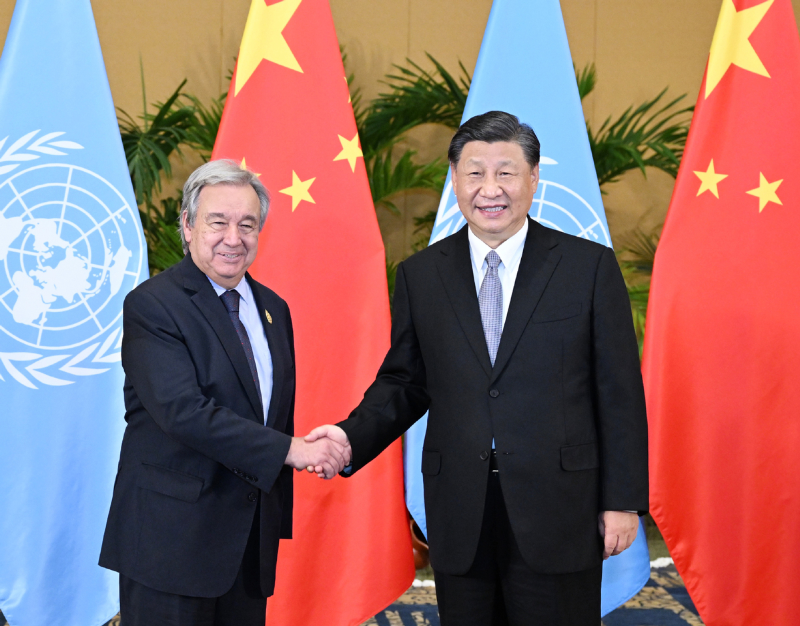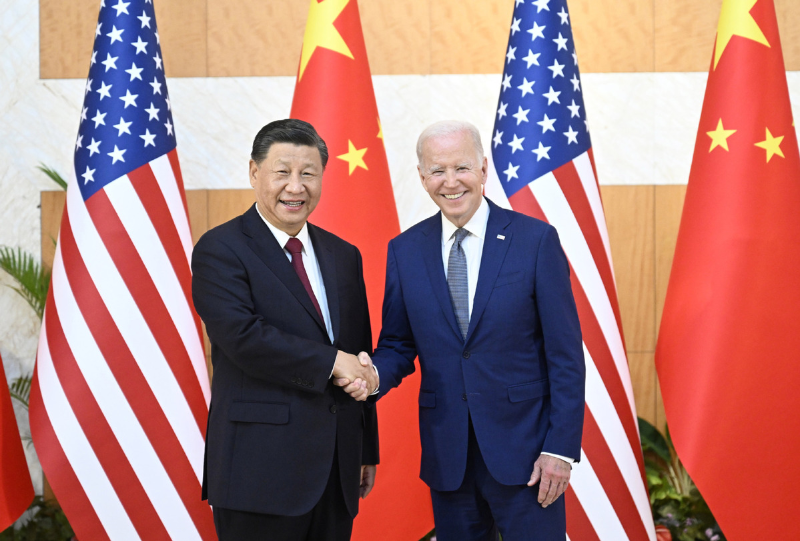Overseas funding seen as key to high-quality national development
China’s latest move to open its market to foreign investment in the manufacturing sector will contribute to high — quality development, and ensure the stability and security of global industrial and supply chains, market watchers and business leaders said.
Right after the conclusion of the 20th National Congress of the Communist Party of China last month, the National Development and Reform Commission, which is the country’s top economic planner, and five other central government departments jointly released a notice to encourage foreign investment in high-end equipment, basic components and key parts for advanced manufacturing, as well as high-tech industries.
The government will take further steps to facilitate the border entry and exit of executives and technicians of multinational companies and their families in accordance with national COVID-19 pandemic prevention and control policies, according to the notice.
China will also encourage foreign investment in research and development, design and modern logistics in the service industry, as well as in innovation and applications related to new energy, green and low-carbon technologies, the notice said.
Wang Wen, executive dean of the Chongyang Institute for Financial Studies of the Renmin University of China in Beijing, said these policy measures reflect China’s unwavering determination to expand high-level opening-up, optimize foreign investment structure and attract more global stakeholders to invest and develop in the country.
Reiterating that high-end manufacturing is crucial for growing the real economy and advancing new industrialization, he said that the high-quality development of Chinese manufacturing needs the participation of foreign companies, and that their investment will in turn generate decent financial returns.
As China continues to focus on supporting the real economy and expanding the use of foreign investment in key sectors for innovation-driven development — for instance, high-tech manufacturing and other strategic and emerging industries — it will accelerate the transformation and upgrading of traditional industries and bring growth opportunities to small and medium-sized businesses in the years ahead, said Zhao Ping, deputy head of the Academy of Beijing-based China Council for the Promotion of International Trade.
“The policies aimed at facilitating the exchange of workers from foreign companies are also conducive to further shoring up the confidence of multinationals and speeding up the implementation of major foreign investment projects,” she said.
Thanks to its social stability, tremendous economic potential, complete industrial chain and preferential policies, China’s attractiveness as a destination for foreign direct investment remained strong in the third quarter of 2022, according to a survey released by the CCPIT.
Attracted by opportunities in areas such as carbon neutrality, high-end manufacturing and innovation-driven development, foreign direct investment in China expanded 15.6 percent year-on-year to more than 1 trillion yuan ($136.7 billion) in the first nine months of the year, statistics from China’s Ministry of Commerce show.
The ministry data showed that the FDI growth rate in the high-tech sector was 32.3 percent between January and September. The figures for high-tech manufacturing and high-tech services were 48.6 percent and 27.9 percent, respectively.
“China is playing an ever-greater role in the world,” said Chen Yudong, president of Bosch China — a branch of Germany’s Robert Bosch GmbH-and a five-time participant at the annual China International Import Expo, which concluded on Nov 10. “Take the automotive industry as an example. This market is leading the transformation towards electrified and connected mobility.”
Bosch operates four business divisions in China: mobility solutions, industrial technology, consumer goods, and energy and building technology. The most significant sector, mobility solutions, accounts for 75 percent of its total business.
Under its plan, Bosch’s cross-domain computing solutions research and development center will be inaugurated in Shanghai later this month. Phase II of the company’s united automotive electronic systems plant in Taicang, Jiangsu province, is expected to be completed in the second quarter of 2023.
Danish engineering company Danfoss Group is upbeat about the development of the green sector in China after seeing its sales revenue jump from 4 billion yuan in 2015 to over 10 billion yuan last year.
“Danfoss is committed to investing in China, which is the company’s second home market,” said Arthur Xu, president of Danfoss China.
“We are committed to long-term investment in China. Our recent announcement of 100 million euros ($103 million) to build a power module plant in Nanjing, Jiangsu province, is a clear sign of our continued positive outlook for the Chinese market,” he said.
As it further unleashes the potential of foreign investment for driving high-quality development, the country is expected to better align its domestic economic agendas with the concerns and interests of foreign investors, said Sun Xiao, secretary-general of the China Chamber of International Commerce.
Moreover, China’s advantages — including a complete industrial system, fast-growing 5G technology, the tangible growth of China-Europe freight train services, its huge market and positive long-term economic fundamentals, as well as participation in bilateral and multilateral trade agreements such as the Regional Comprehensive Economic Partnership — will continue to contribute to the growth of overseas companies in the country, he added.
Tamas Hajba, the representative of the Organization for Economic Cooperation and Development in China, said, “Foreign investment has long played an important role in driving the growth of China’s economy.”
Even though China is a major draw for FDI, its accumulated stock relative to GDP is still low. This means there is still room for improvement and more opportunities to expand and attract foreign capital, he added.



